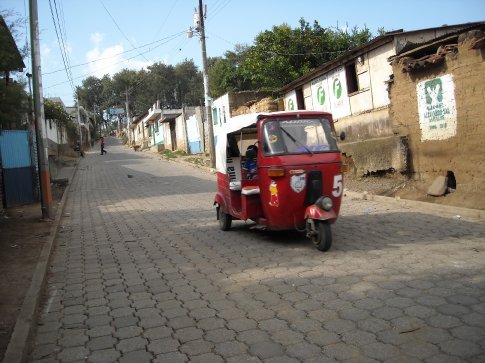
With the stove finished today I will work on my documentary and take pictures of the community. I see the row of children who wait in the door to go inside the school, they play with the teachers and ask me when I will return to teach them, I promise that I will go tomorrow to say good bye.
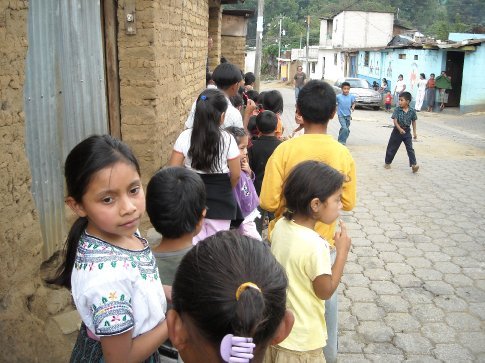
Before lunch I interview Elena. She and her family receive us every day and worry that the volunteers feel comfortable in the community. Elena has 48 years, three daughters, three sons and Hellen a charming granddaughter that loves to interact with the volunteers. Elena comes from a family in which she had only brothers and her father thought that it was not necessary that a woman assisted to school, therefore up to today she has difficulties to read and cannot write. Nevertheless her firm character compensated with a maternal tenderness, became her into the leader of the community women.
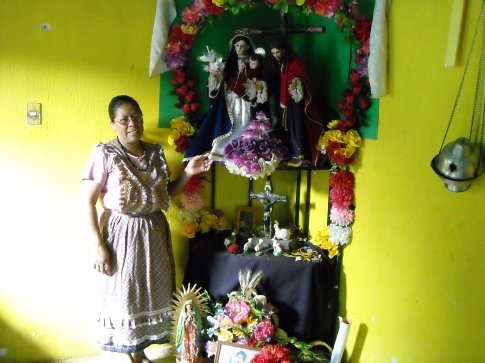
In a meeting of indigenous leaders, though she didn’t prepare any material, she met Dom and told him her need to deliver free education to the children of the community, specially to the girls. This way was born the project of the Phoenix School. Now she is the link between the school and San Andrés de Itzapa families, where she has become an authority.
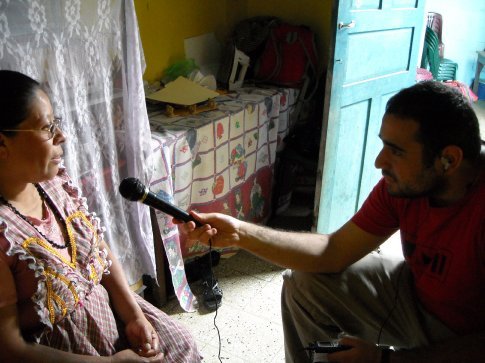
Grace one of her daughters, makes workshops of women's literacy. Elena invites me to see the work they do. Women think that I am a supervisor and show me their notebooks, they have learned to write letters, to fill forms, to check contracts.
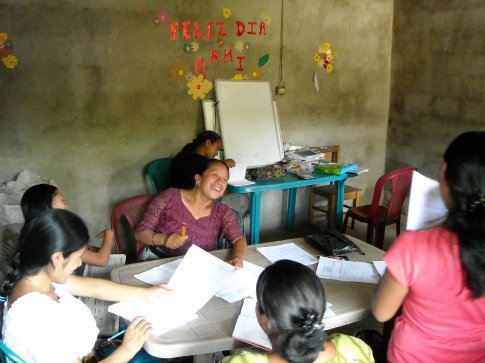
Elena explains to me that when the women cannot read, the children cheat them to avoid school, kids say to them that they have homework and show them the notebook. They remain at home to do it, but insteed they sit down to watch television.
I remember that one of the days in which I was working on the stove, Edy said to his mother that he had a homework of the state school and for this reason he did not go to the other school, he passed the evening watching television and observing us.
For Elena to inculcate honesty into the children is a challenge, San Andrés is poor, the delinquency abounds and the police appear very rarely according to what Carolina told me.
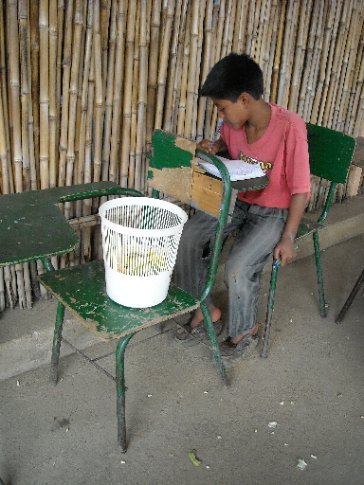
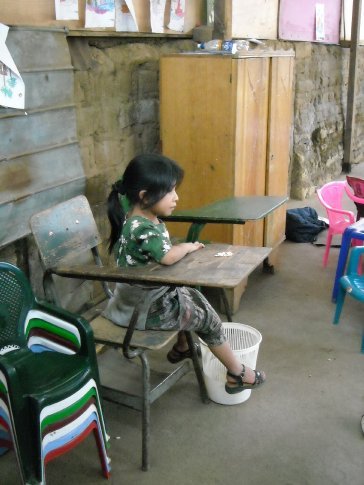
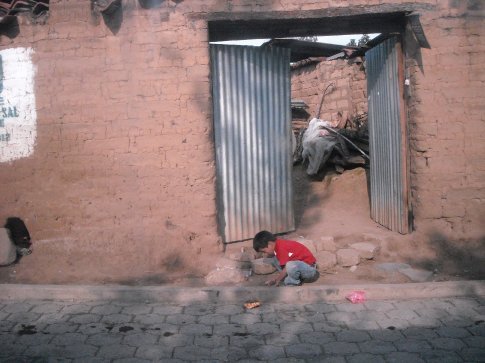
While I take some pictures out of the school,I see Tito coming out in class hour. He was my student last week, he is hiperactive, but intelligent and awake. He approaches to me.
- What happens Tito?
- I have stomachache
- Yeah?
- Yes.
- It is not that you got bored and you want to go out to play?
Tito lows his eyes and without saying goodbye walks away alone.
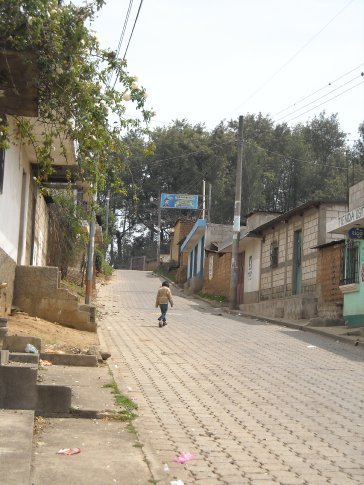
Spanish:
Honestidad
Con la estufa terminada hoy me dedicaré a trabajar en mi documental y a sacar fotos en la comunidad. Veo a los niños que hacen la fila en la puerta de la escuela para entrar, juegan con los profesores, me preguntan cuando vuelvo a hacerles clases, les prometo que mañana me voy a despedir de ellos. Antes del almuerzo entrevisto a Elena. Ella y su familia nos reciben todos los días y se preocupan de que los voluntarios se sientan cómodos en la comunidad. Elena tiene 48 años, tres hijas y tres hijos, más Hellen una nieta encantadora a la que le fascina interactuar con los voluntarios. Elena viene de una familia en la que todos sus hermanos son hombres y su padre consideró que no era necesario que una mujer asistiera a la escuela, por lo tanto hasta hoy tiene dificultades para leer y no puede escribir. Sin embargo su carácter firme, compensado con una ternura maternal, la llevó a convertirse en la líder de las mujeres de la comunidad. En una reunión de líderes indígenas, aunque no llevaba material ni preparación alguna, conoció a Dom y le planteó la necesidad de entregar educación gratuita a los niños de la comunidad, especialmente a las niñas. Así nació el proyecto de la Escuela Phoenix. Ahora ella es el link, entre la escuela y las familias de San Andrés de Itzapa, donde se ha convertido en una autoridad. Grace una de sus hijas, realiza talleres de alfabetización de mujeres, me invita a conocerlos, las mujeres piensan que soy un supervisor y me muestran sus cuadernos, han aprendido a escribir cartas, a llenar formularios, a revisar contratos. Elena me explica que cuando las mujeres no pueden leer, los niños suelen engañarlas para no ir a la escuela, les dicen que tienen tarea, les muestran el cuaderno y se quedan en casa para hacerla, cuando en realidad se sientan a ver televisión. Recuerdo que uno de los días en los que estaba trabajando en la estufa, efectivamente Edy le dijo a su madre que tenía tarea de la escuela estatal y por esa razón no fue a la otra escuela, durante la tarde se dedicó a ver televisión y a observarnos. Para Elena inculcar honestidad en los niños es un desafío, San Andrés es pobre, abunda la delincuencia y la policía aparece muy rara vez según lo que me contó Carolina. Mientras saco algunas fotos afuera de la Escuela, veo salir en plena hora de clases a Tito. Fue mi alumno la semana pasada, es inquieto, pero inteligente y despierto. Se acerca a mí.
- ¿Qué pasa Tito?
- Es que me duele el estómago.
- ¿Sí?
- Sí.
- ¿No es que te aburriste y te dieron ganas de salir a jugar?
Tito baja los ojos y sin despedirse se aleja caminando solo.